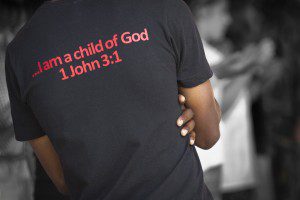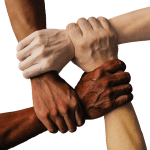A chart featured in The Myth of Equality compares the amount of time that slavery and segregation have been legal realities in the United States to the amount of time they have not. Slavery existed in America for 246 years, including the time before the United States achieved independence. Segregation existed legally for another 99 years following the abolition of slavery, meaning that minorities, especially African-Americans, have had full rights in the United States for only the last 53 years. Given the how relatively recently African-Americans and other minorities achieved full legal rights, serious attention is due to the contemporary experiences of these historically disenfranchised groups. Ken Wytsma’s The Myth of Equality: Uncovering the Roots of Injustice and Privilege asks American Christians to grapple with some ugly realities.
The Myth of Equality is the latest book on race and minority experiences in America from Intervarsity Press, which has produced a series of solid titles in this area in the last few years. While previous titles from IVP, such as David P. Leong’s excellent Race and Place, have dealt with specific issues related to race in America, Wytsma’s book provides a broad overview of a multitude of problematic aspects of American society. The prison population, redlining, income inequality, and diversity among Christian event speakers all receive attention over the course of the book. Wytsma’s scope is large, but not in such a way that the discussion feels shallow or unsubstantial.
The book provides a solid introduction to contemporary issues related to race in America and the need for response from churches and individual Christians. Wystma’s tactic of blending history, Bible, and experience helps build a holistic case for Christian involvement in contemporary dialog issues related to race and ethnicity. The primary audience for this book seems to be Christians new to this conversation and unsure of its necessity, as well as those seeking to explain these issues to people who may be unaware and skeptical.
With this audience in mind, Wystma does a masterful job of anticipating and answering possible objections to his project. He regularly raises and answers “questions you aren’t supposed to ask” about race, America, and the Church. Isn’t it be better to be “colorblind” than to keep bringing these issues up? Are we dwelling too much on the past when we talk about slavery and segregation? Why haven’t I (a white male) benefitted from so-called “white privilege”? Wystma regularly voices questions such as these and answers them respectfully and thoughtfully, realizing that many American Christians have reservations about entering these conversations. His grace and solid responses are always compelling and thought-provoking.
The Myth of Equality helpfully deconstructs notions that prevent people from having these difficult conversations- the idea that we are a “post-racial” society, that racism is “in the past,” or that racial equality has been achieved in the United States. Wystma compellingly makes his case while demonstrating why Christians have a particular responsibility to seek racial justice. Those looking for a resource to help start dialog and positive action in a Christian setting will find a great resource in The Myth of Equality.
Special to Patheos from Jake Raabe














